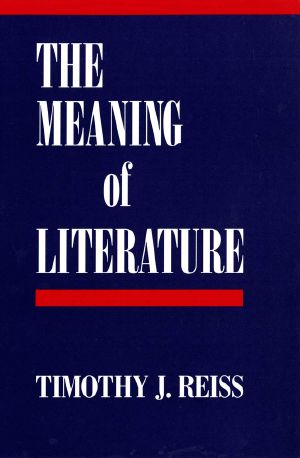The Meaning of Literature

- Authors
- Reiss, Timothy J.
- Publisher
- Cornell University Press
- Tags
- literature , general , meaning (philosophy) , literary criticism , philosophy , literature and history , semiotics & theory
- ISBN
- 9780801499470
- Date
- 1991-12-19T00:00:00+00:00
- Size
- 1.09 MB
- Lang
- en
In this searching and wide-ranging book, Timothy J. Reiss seeks to explain how the concept of literature that we accept today first took shape between the mid-sixteenth century and the early seventeenth, a time of cultural transformation. Drawing on literary, political, and philosophical texts from Central and Western Europe, Reiss maintains that by the early eighteenth century divergent views concerning gender, politics, science, taste, and the role of the writer had consolidated, and literature came to be regarded as an embodiment of universal values.
During the second half of the sixteenth century, Reiss asserts, conceptual consensus was breaking down, and many Western Europeans found themselves overwhelmed by a sense of social decay. A key element of this feeling of catastrophe, Reiss points out, was the assumption that thought and letters could not affect worldly reality. Demonstrating that a political discourse replaced the no-longer-viable discourse of theology, he looks closely at the functions that letters served in the reestablishment of order. He traces the development of the idea of literature in texts by Montaigne, Spenser, Sidney, Shakespeare, Lope de Vega, and Cervantes, among others; through seventeenth-century writings by such authors as Davenant, Boileau, Dryden, Rymer, Anne Dacier, Astell, and Leibniz; to eighteenth-century works including those of Addison, Pope, Batteux and Hutcheson, Burke, Lessing, Kant, and Wollstonecraft. Reiss follows key strands of the tradition, particularly the concept of the sublime, into the nineteenth century through a reading of Hegel's Aesthetics.
The Meaning of Literature will contribute to current debates concerning cultural dominance and multiculturalism. It will be welcomed by anyone interested in literature and in cultural studies, including
literary theorists and historians, comparatists, intellectual historians, historical sociologists, and philosophers.